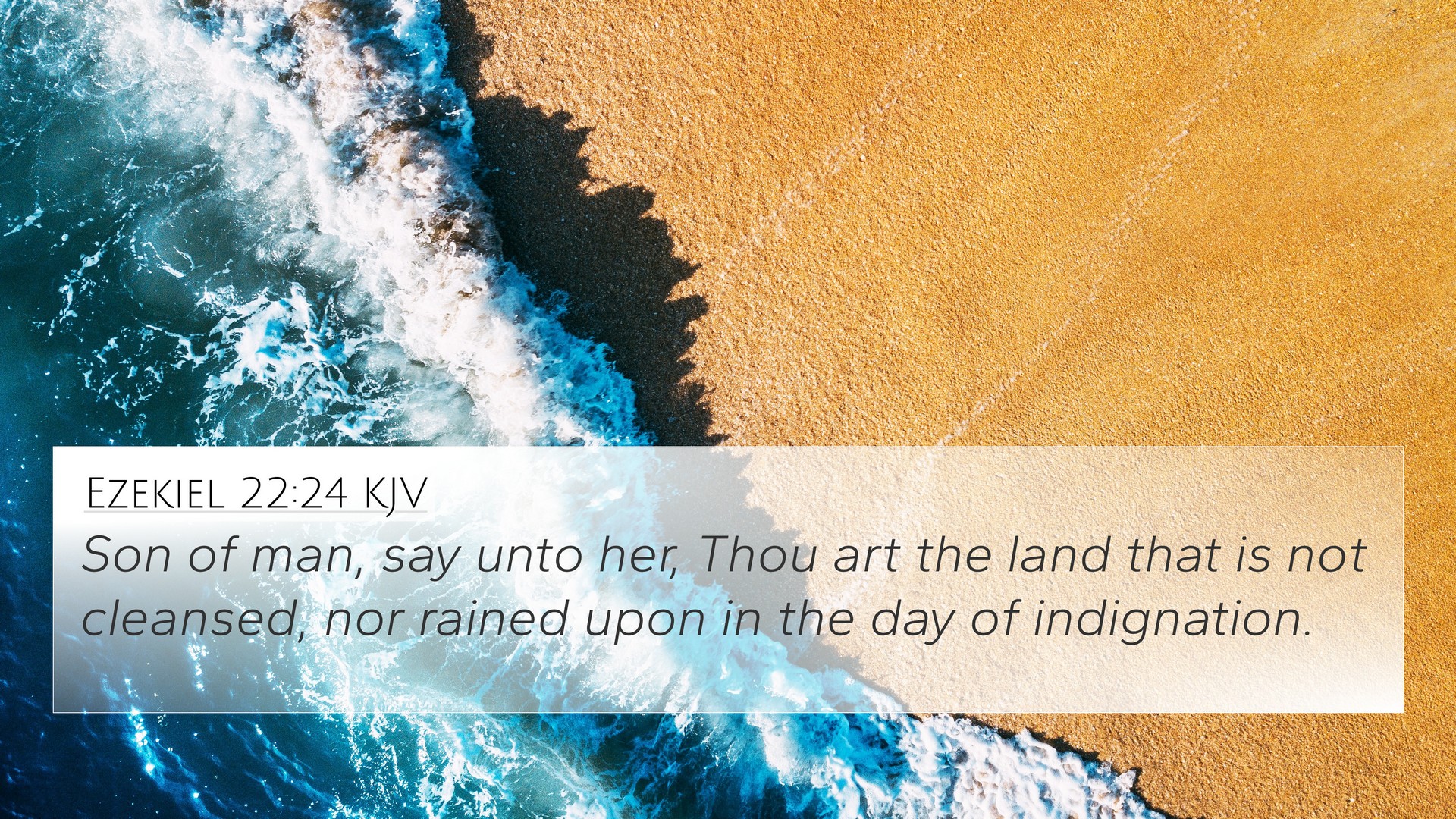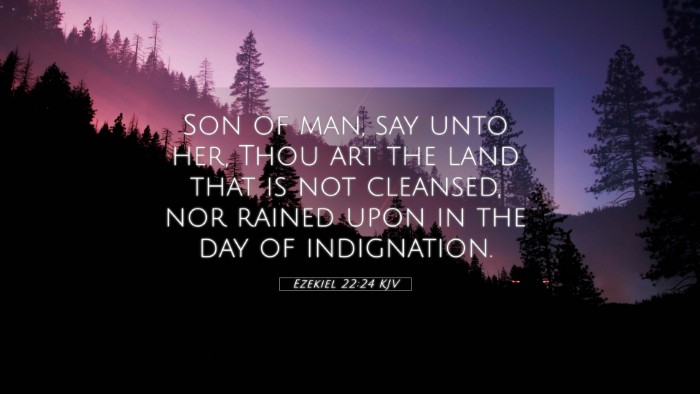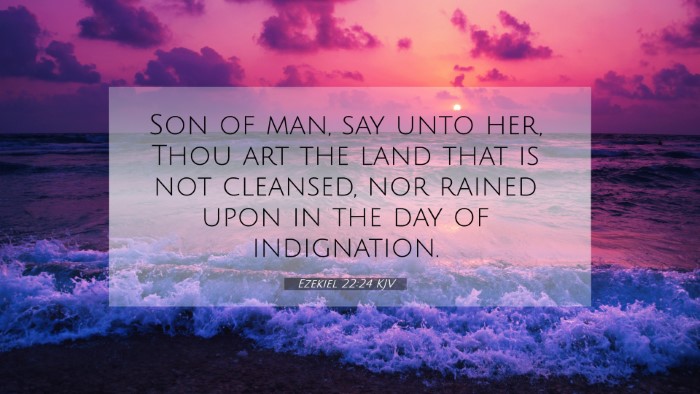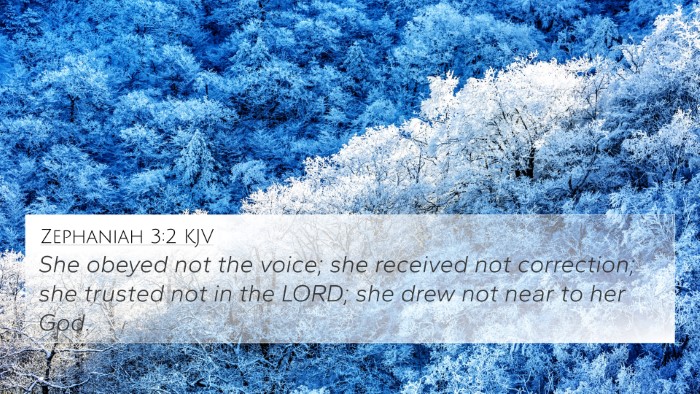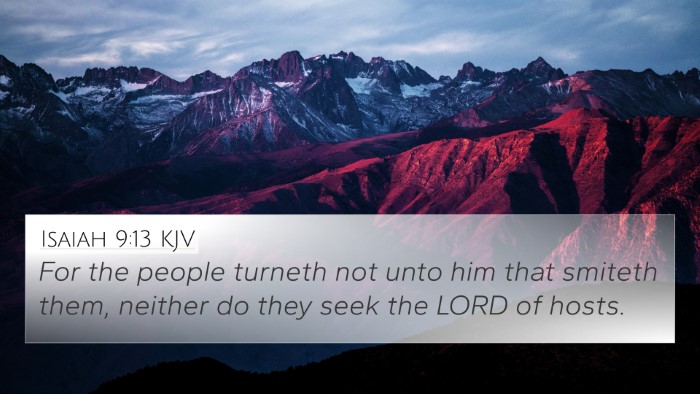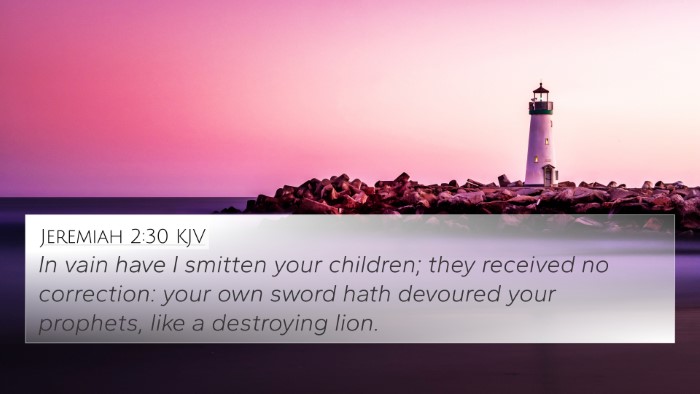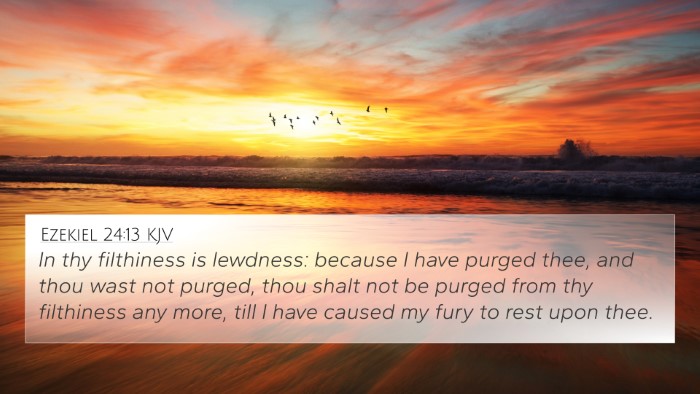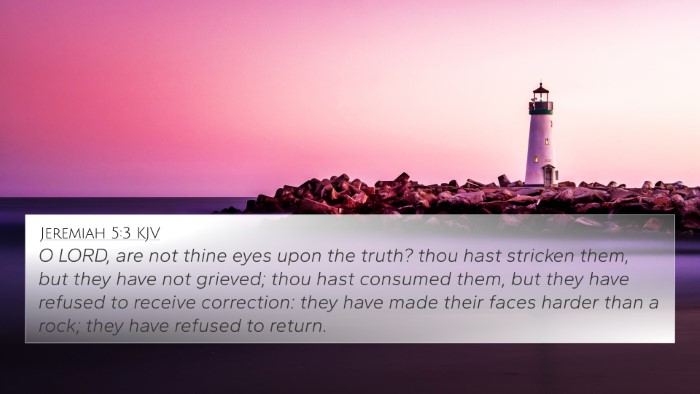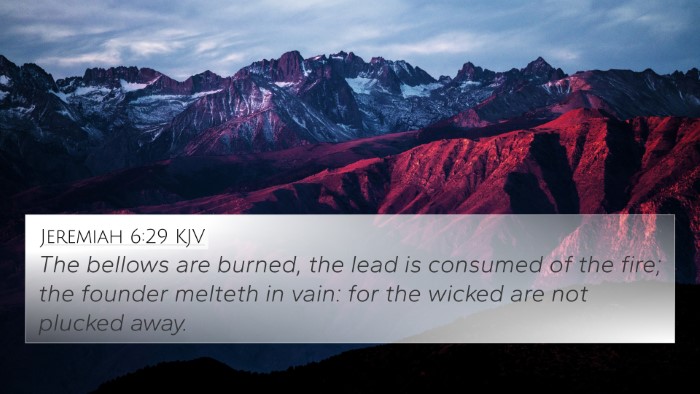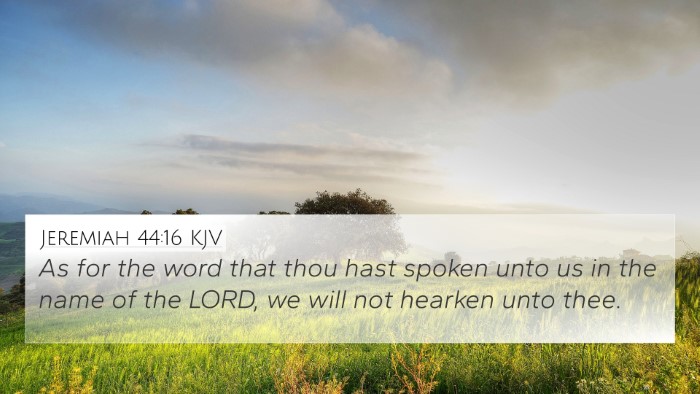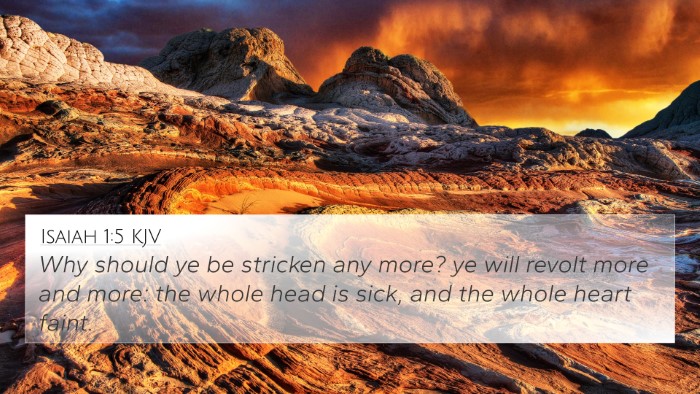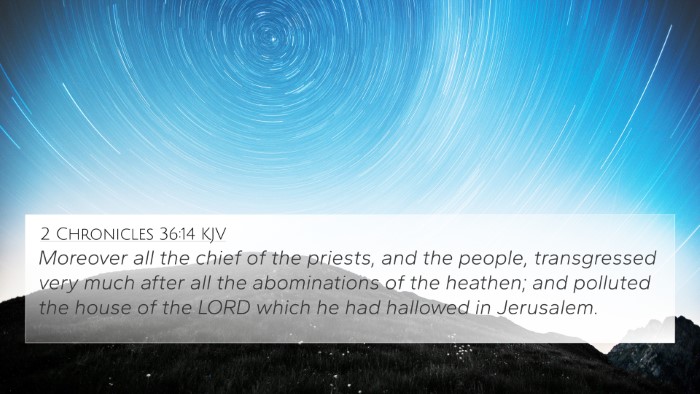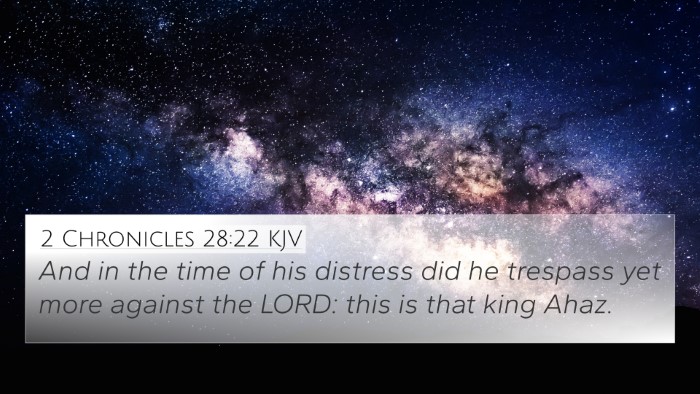Ezekiel 22:24 - Summary and Interpretation
Bible Verse: Ezekiel 22:24 (KJV) - "Son of man, say unto her, Thou art the land that is not cleansed, nor reigned upon in the day of indignation."
This verse comes from a significant portion of the Book of Ezekiel where God communicates the dire spiritual condition of Jerusalem. Ezekiel acts as the prophet who reveals both the judgment and the hope that lies within God's word. The message is a grim indictment of a city marked by sin and corruption.
Meaning and Interpretation
The verse can be broken down into several key components to better understand its implications:
- Thou art the land: This metaphor speaks to Jerusalem as a geographic location but extends to symbolize the people within it, denoting their moral and spiritual state.
- Not cleansed: This implies a lack of purification from sin, which was a recurring theme in the books of the prophets. Sin was seen as a pollutant that tainted the community, preventing them from being in right standing with God.
- Nor reigned upon: This reflects the absence of divine guidance and favor, with God's presence being replaced by judgment. The imagery of ‘the day of indignation’ portrays a time when God's wrath is fully revealed.
Insights from Commentaries
Various public domain commentaries provide rich insights into this verse:
Matthew Henry
Matthew Henry emphasizes that this passage lays bare the spiritual decay of Jerusalem, likening it to an unclean land. He notes that the lack of rain symbolizes both physical drought and spiritual desolation. Henry argues that the 'day of indignation’ signifies a time of judgment that offers no respite from calamity.
Albert Barnes
Albert Barnes indicates that the prophet is made to convey a message of warning, portraying the inhabitants as a land unfit for God’s blessings. He highlights the severe consequences of sin and disobedience, which have led to the withdrawal of God’s mercy.
Adam Clarke
Adam Clarke elucidates the concept of spiritual cleansing, suggesting that Jerusalem’s sin leads to a curse rather than blessing. He stresses the importance of repentance and the need for divine intervention to cure the land of its iniquities.
Cross-References
This verse can be enriched through the following cross-references, which highlight the themes of judgment, repentance, and divine mercy:
- Isaiah 1:21-23: A condemnation of Jerusalem for their corruption.
- Jeremiah 2:22: The call for cleansing and spiritual renewal.
- Lamentations 1:8: A reflection on the desolation of Jerusalem.
- Amos 4:7: The absence of rain as a symbol of God’s displeasure.
- Zephaniah 3:6: Judgment on the unfaithful cities.
- John 15:2: The need for spiritual pruning and cleansing.
- Hebrews 12:29: God as a consuming fire, symbolizing His holy indignation.
Thematic Connections
The thematic connections between Ezekiel 22:24 and other scriptures emphasize the importance of repentance, the need for divine intervention, and the consequences of turning away from God.
- Representation of Sin: Multiple passages highlight the importance of recognizing and repenting from sin, an overarching theme in the prophetic books.
- God's Retributive Justice: This theme is persistent throughout both the Old and New Testaments, urging believers to return to God's ways.
- Hope in Judgment: Despite the judgment portrayed in Ezekiel, many passages also speak of hope and restoration, such as Jeremiah 29:11.
Understanding Through Cross-Referencing
To fully grasp the meaning behind Ezekiel 22:24, employing a method of cross-referencing other biblical texts is essential. This can reveal the nuanced ways in which various scriptures interact and support each other. Tools for Bible cross-referencing, such as Bible concordances and cross-reference guides, can enhance one’s study.
Additionally, identifying connections between Old and New Testament themes elucidates how scriptures echo divine principles and warnings across history. For example, parallels can be drawn from the prophetic warnings in Ezekiel to the teachings of Jesus on repentance and spiritual fulfillment.
Conclusion
In summary, Ezekiel 22:24 serves as a powerful reminder of the consequences of sin and the spiritual neglect faced by Jerusalem. It is through careful study and cross-referencing with other scriptures that believers can gain a deeper understanding of God's nature and His desire for repentance and purification.
Reflective Questions for Further Study
- What parallels can you find between Ezekiel's message and the teachings of Jesus?
- In what ways does this verse inform your understanding of spiritual renewal?
- How can the cross-referencing techniques be utilized to enhance personal Bible study?
